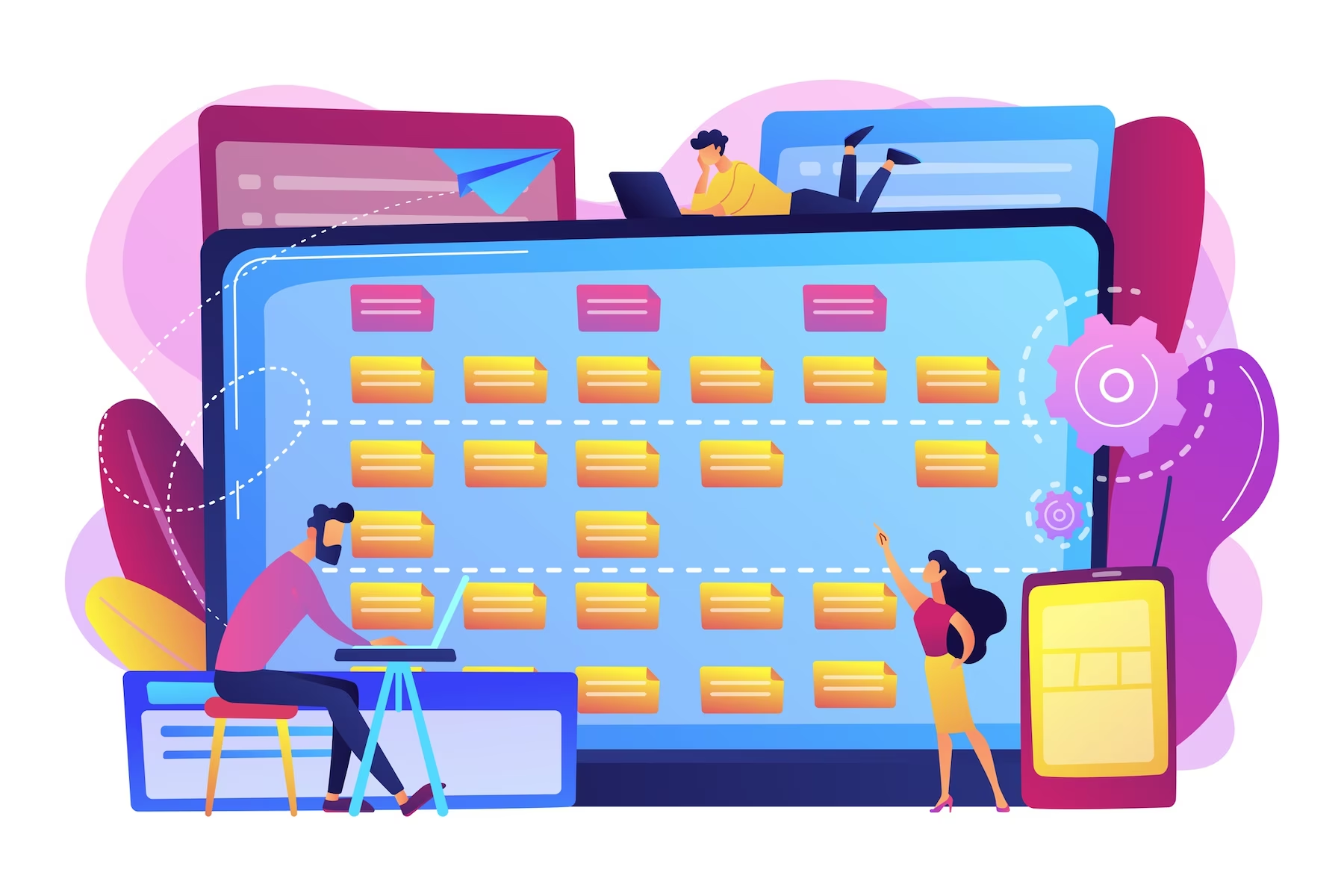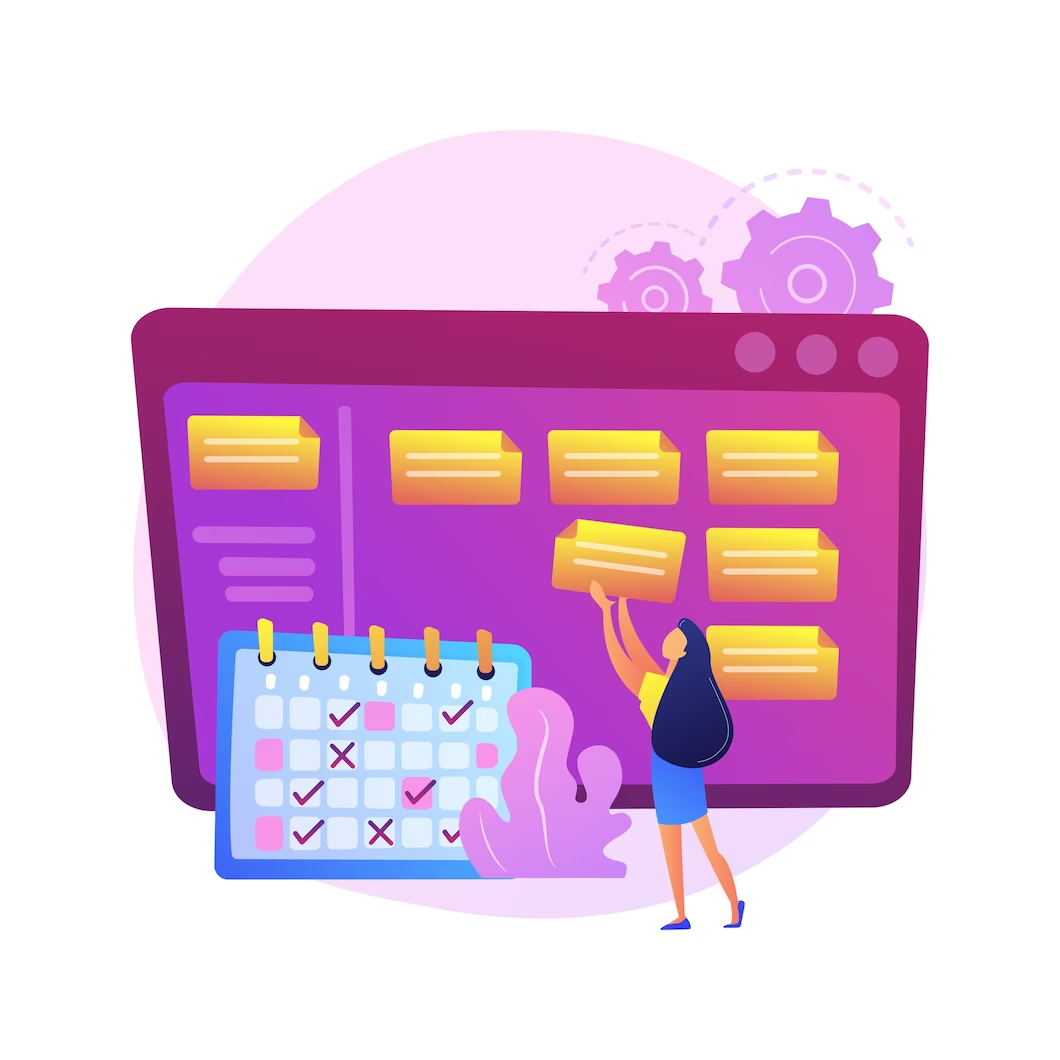
Are you struggling to decide between an online monthly planner and a traditional paper planner? Both planners have their own distinct advantages and can help you manage your time and organize your life more effectively.
The use of planners, be it paper or digital, has been essential for many people to keep track of their schedules, tasks, and goals. With the ongoing debate about the benefits of using an online monthly planner versus a traditional paper planner, it is essential for you to understand the advantages of each type so you can make the best decision for your needs.
1. Accessibility and Portability

Online monthly planner offers the convenience of being accessible from multiple devices, such as smartphones, tablets, and computers. This means that you can quickly check your schedule or add new events and appointments even when you’re on the go. If you have an internet connection, your planner is always at your fingertips.
In addition, online planners are often cloud-based, which means that your data is safely kept on remote servers. This ensures that your planner is automatically backed up, reducing the risk of losing important information. Moreover, cloud storage allows you to sync your planner across multiple devices, making it even easier to stay organized and up-to-date with your plans.
On the other hand, paper planners provide the advantage of being physically present, allowing you to access your plans and schedules without the need for an internet connection or a charged device. This means you can rely on your planner in any situation, whether you’re in a remote location or experiencing a power outage.
Paper planners also do not depend on technology, which can be a significant advantage for those who prefer a simpler, more traditional approach to planning. Unlike online planners, you don’t need to worry about software updates, compatibility issues, or potential data breaches when using a paper planner.
When it comes to accessibility and portability, online planners may be better suited for individuals who rely heavily on technology and appreciate the convenience of having their planner available on multiple devices. However, paper planners might be more suitable for those who value offline access and a more straightforward planning experience.
2. Customization and Flexibility

Online monthly planners offer a wide range of personalization options, allowing you to choose the layout, colors, and fonts that best suit your preferences. This means you can create a planner uniquely tailored to your needs and aesthetic tastes.
Furthermore, online planners make it easy to update and rearrange your plans, as you can quickly edit, delete, or move events and appointments with just a few clicks. This flexibility can be quite beneficial for those who change schedules on a constant basis, as it allows for seamless adjustments without the mess of erasing or crossing out entries in a paper planner.
On the flip side, paper planners also offer unique layouts and designs, with various formats and styles available to suit your planning needs. From simple, minimalist designs to elaborate, artistic layouts, there is a paper planner for everyone.
Additionally, paper planners allow for creativity through customization, as you can decorate your planner with stickers, washi tape, colored pens, and more. This hands-on approach to planning can be both enjoyable and therapeutic, providing a relaxing break from the digital world.
In terms of customization and flexibility, online monthly planners might be a better fit for those who enjoy the ease of updating and rearranging their plans digitally and the ability to personalize the planner’s appearance. Conversely, paper planners may appeal more to those who appreciate the creative aspect of customizing their planners and the satisfaction of physically writing down their plans.
3. Integration and Collaboration

One of the robust advantages of an online monthly planner is integration with other apps and tools, such as email, calendars, and task management systems. This integration allows you to streamline your planning process and ensure all your essential information is in one place.
Moreover, online planners often include collaboration and sharing features, making coordinating schedules with friends, family, or colleagues easy. These features can be particularly beneficial for group projects, event planning, or simply keeping everyone on the same page.
In contrast, paper planners focus on individual planning and offer a different level of integration with other tools or systems. This can be an advantage for those who prefer a more straightforward and self-contained planning experience without the potential distractions or complications of digital integrations.
Paper planners also provide privacy and limited access to your plans, ensuring that only you (or those you choose to share your planner with) can view your schedule and personal information. This can be particularly important for those who give importance to their privacy and want to keep their plans and thoughts confidential.
When considering integration and collaboration, online monthly planners may be the better choice for those who value seamless integration with other digital tools and the ability to collaborate with others easily. On the other hand, paper planners might be more suitable for those who prefer a more focused, individual planning experience and prioritize privacy.
4. Tactile Experience and Personal Connection

Among the top advantages of online monthly planner is that it offers a streamlined and efficient planning experience, with features such as search functions, reminders, and notifications that can help you stay on top of your schedule. Additionally, digital planners often include digital tools for expression, such as emojis, images, or even audio and video clips, allowing you to add a personal touch to your plans.
On the other hand, you can also have tangible and tactile experience when using a paper planner. Physically writing down your plans, flipping through the pages, and holding the planner in your hands can create a sense of satisfaction and accomplishment that may not be possible with digital planners.
Furthermore, using a paper planner can foster an emotional connection to your plans, as the act of writing by hand has been shown to improve memory and increase engagement with the material. This can help you feel more invested in your goals and more likely to follow through with your plans.
Concerned with tactile experience and personal connection, online monthly planners may be the better option for those who appreciate the efficiency and additional digital features they provide. However, paper planners might be more appealing to those who value the tangible, hands-on experience and the emotional connection that comes with physically writing down their plans.
5. Cost and Value

Online monthly planners can often provide a cost-effective solution for managing your schedule. Many online planners offer free versions with basic features, while premium subscriptions with advanced functionality are generally available at a reasonable monthly or annual fee. This can be an attractive option for those on a budget or looking for a planner without a significant upfront cost.
In addition, online planners typically include regular updates and improvements, making sure that you gain access to the latest features and enhancements without any additional expense. This can contribute to the long-term value of your investment in an online planner.
Paper planners, on the other hand, typically require an upfront cost for purchase. The price of a paper planner can vary widely depending on factors such as the design, quality, and brand. However, once you’ve purchased a paper planner, there are no ongoing costs or subscription fees to worry about.
Furthermore, paper planners can offer a sense of value in the form of a tangible product that you can hold, touch, and display. For some people, the physical presence of a paper planner can make it feel like a more worthwhile investment, especially if it features high-quality materials and an attractive design.
When comparing the cost and value of online and paper planners, the best choice depends on your financial preferences and priorities. Online monthly planners may be more suitable for those who want a cost-effective, regularly updated solution. In contrast, paper planners might be more appealing to those who prefer a one-time purchase and value the tangible aspects of a physical planner.
6. Visual Appeal

Online monthly planners and online life planners often provide a wide range of visual customization options, allowing you to personalize the appearance of your planner to suit your taste. From choosing themes and colors to uploading your images or selecting custom fonts, online planners enable you to create a visually appealing and unique planning experience.
Additionally, digital planners often incorporate sleek, modern designs that can be visually appealing to those who appreciate a clean and polished aesthetic.
Paper planners also offer a variety of visual appeal through unique designs, artwork, and layouts. With countless styles available, you can find a paper planner that reflects your personality and preferences, whether you’re drawn to minimalist designs or elaborate, artistic creations.
Moreover, paper planners provide a canvas for personal expression, as you can decorate and customize your planner with stickers, doodles, washi tape, and other embellishments. This hands-on approach to personalization can result in a planner that is not only visually appealing but also deeply meaningful and personal.
When it comes to visual appeal and aesthetic, online monthly planners might be the better option for those who appreciate the ability to customize their planner’s appearance digitally and enjoy modern design elements. On the other hand, paper planners may be more suitable for those who value the artistic and creative aspects of personalizing a physical planner and appreciate the diverse range of designs available in the market.
7. Security and Privacy

Online monthly planners typically employ security measures to protect your data, such as encryption and password protection. This can provide peace of mind, knowing that your plans and personal information are safeguarded against unauthorized access.
However, some users may have concerns about the potential for data breaches, hacking, or unauthorized access to their information when using an online planner. In these cases, it’s important to carefully research and select a planner with robust security measures in place to mitigate these risks.
Paper planners inherently offer a higher level of security and privacy, since they do not store your information on remote servers or require an internet connection. The sole way for an individual to access your plans is by physically obtaining your planner, which can provide a sense of control over the privacy of your information.
That being said, paper planners can be lost, stolen, or damaged, which could result in the loss of your plans and personal information. In this regard, the security of a paper planner depends on how well you protect and care for it.
When evaluating security and privacy, online monthly planners might be the better choice for those who trust the security measures in place and appreciate the convenience of digital storage. On the other hand, paper planners may be more appealing to those who prioritize privacy and want to maintain full control over the physical security of their planner.
The TakeAway
Both online and paper planners offer a range of advantages to suit different preferences and needs. Online monthly planners provide accessibility, customization, integration, and reduced environmental impact, while paper planners offer offline access, creative customization, a tactile experience, and support for eco-friendly products. Ultimately, the choice between an online or paper planner comes down to personal preference.
Week Plan stands out as one of the best online monthly planners due to its unique blend of features, usability, and design. What sets us apart from other online planners is our focus on helping users prioritize their tasks based on their goals and values. Explore our online monthly planner today and experience better work-life balance.
Frequently Asked Questions (FAQs)
1. What are the advantages of using an online monthly planner over a traditional paper calendar?
An online monthly planner offers greater accessibility, customization, and integration with other tools. You can access your planner from multiple devices, personalize it to your preferences, and connect it with other apps to streamline your personal and professional lives. Additionally, digital planners often have features like color coding and reminders, making it easier to stay organized.
2. How can a planner app help me manage both my personal and professional lives?
A planner app can help you manage your personal and professional lives by allowing you to organize your tasks, events, and appointments all in one place. Features like color coding and reminders can help you prioritize tasks and maintain a positive mindset. Integration with other tools and collaboration features also make it easier to coordinate with others.
3. Which type of planner is best for someone who values privacy and offline access?
If privacy and offline access are your priorities, a paper planner may be a better choice. Paper planners don’t store your information on remote servers or require an internet connection, providing greater control over the privacy of your plans. Just ensure to take proper care of your planner to protect it from damage or loss.
4. Can I personalize the appearance of my digital planner?
Yes, digital planners typically offer a wide range of personalization options, allowing you to choose the layout, colors, fonts, and themes that best suit your preferences. This means you can create a planner that is uniquely tailored to your needs and aesthetic tastes, making it a visually appealing and functional tool.
5. How do I choose the right type of planner for my needs?
To choose the right type of planner, consider factors such as accessibility, customization, integration with other tools, tactile experience, privacy, and cost. It is important to discover which features are most important to you and select a planner that best aligns with your preferences and priorities, whether it’s a digital planning app or a traditional paper planner.
6. Does using a digital planning app have any environmental benefits?
Yes, using a digital planning app can reduce paper waste and lower your environmental footprint compared to using a paper planner. Digital planners don’t require physical materials, making them a more eco-friendly option. However, if you prefer paper planners, you can still opt for eco-friendly products made from recycled materials or sustainably sourced paper.

More Posts
Habit 1: Be Proactive - Key Summary & Takeaways
Proactivity means more than just taking the initiative. As humans, we are responsible for our own lives. In other words, proactive people recognize they are solely responsible for their actions. They do not...
11 Effective Ways to Overcome Financial Procrastination
Half of the world struggles with procrastination, which affects money matters a lot. Putting off financial tasks can make you stressed, unhealthy, and lower your self-esteem. Knowing why you procrastinate and using good...
17 Proven Time Management Tips for Busy Moms
Are you a mom? Congratulations! That automatically makes you a superhero! Though the cape you wear is invisible, we see and appreciate you, busy mom. You step up, get things done, and stay...
OKRs Best Practices to Become More Successful
OKRs are now one of the preferred goal-setting methodologies for any company because it is a proven way to accomplish more results in less time. According to a survey, 40% of CEOs consider...